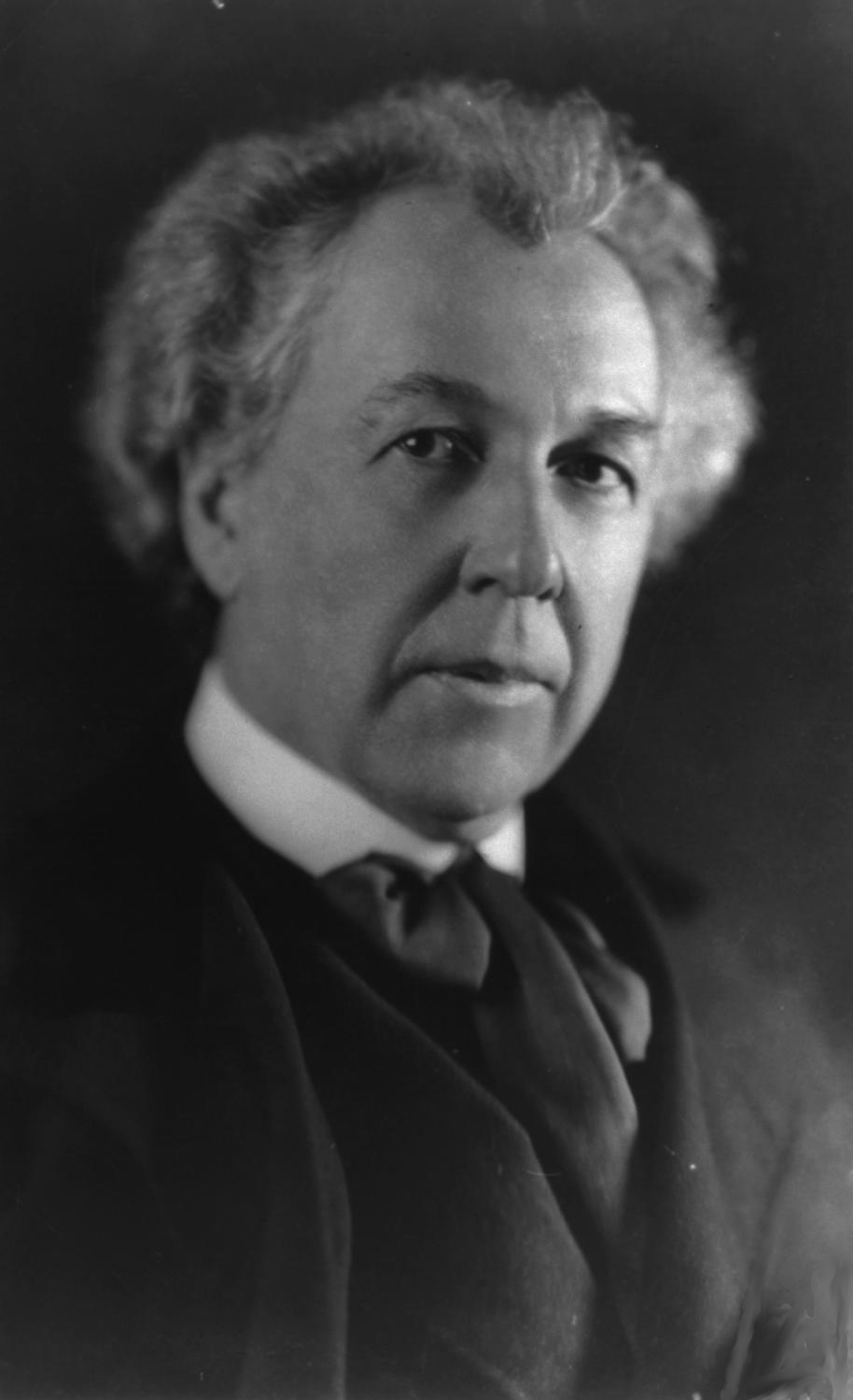“Um profissional é aquele que faz o seu melhor trabalho quando menos vontade tem de o fazer.”
Variante: Um profissional é aquele que faz o seu melhor trabalho quando menos vontade tem de fazê-lo.
Frank Lloyd Wright foi um arquiteto, escritor e educador estadunidense. Um dos conceitos centrais em sua obra é o de que o projeto deve ser individual, de acordo com sua localização e finalidade. No início de sua carreira, trabalhou com Louis Sullivan, um dos pioneiros em arranha-céus da Escola de Chicago. Responsável por mais de mil projetos, dos quais mais de quinhentos construídos, Wright influenciou os rumos da arquitetura moderna com suas ideias e obras e é considerado um dos arquitetos mais importantes do século XX.
Antes de se tornar um dos maiores arquitetos de todos os tempos, ele estudou engenharia por apenas dois semestres, abandonou o curso e foi trabalhar em Chicago como desenhista no escritório de Silsbee, um arquiteto de renome. Tornou-se a figura chave da arquitetura orgânica, exemplificada pela Casa da Cascata, um desdobramento da arquitetura moderna que se contrapunha ao International style europeu. Foi o líder da Prairie School, movimento da arquitetura ao qual pertencem os projetos da Robie House e a Westcott House, e também desenvolveu o conceito de Usonian home, do qual a Rosenbaum House é um exemplo. Sua obra inclui exemplos originais e inovadores de edifícios dos mais diferentes tipos, incluindo escritórios, templos, escolas, hotéis e museus. Frequentemente detalhava também os elementos a serem empregados no interior de suas construções, tais como mobília e vitrais.
Wikipedia

“Um profissional é aquele que faz o seu melhor trabalho quando menos vontade tem de o fazer.”
Variante: Um profissional é aquele que faz o seu melhor trabalho quando menos vontade tem de fazê-lo.
“O presente é a sombra que se move separando o ontem do amanhã. Nela repousa a esperança.”
The present is the ever moving shadow that divides yesterday from tomorrow. In that lies hope.
1949-1959 - Volume 5 de Frank Lloyd Wright Collected Writings, Página 341, Frank Lloyd Wright, Bruce Brooks Pfeiffer - Rizzoli, 1995, ISBN 0847818551, 9780847818556, 352 páginas
“Eu acredito totalmente no Sistema Capitalista.”
I believe totally in a capitalist system
"Frank Lloyd Wright on architecture: selected writings 1894-1940" - Página 256, Frank Lloyd Wright, Frederick Albert Gutheim - Duell, Sloan and Pearce, 1941 - 275 páginas
“Menos é mais apenas quando o mais é demais”
Less is only more where more is no good.
The future of architecture - Página 322, Frank Lloyd Wright - Horizon Press, 1953 - 326 páginas
“Clear out 800,000 people and preserve it as a museum piece.”
On Boston, The New York Times (27 November 1955)
“Night Is but a Shadow Cast by the Sun”
The Living City (1958)
“I doubt if there is anything in the world uglier than a Midwestern city.”
Address at Evanston Illinois (8 August 1954)
“Earth”
The Living City (1958)
“Pictures deface walls oftener than they decorate them.”
"In the Cause of Architecture", in The Architectural Record (March 1908)
As quoted in Truth Against the World : Frank Lloyd Wright speaks for an organic architecture (1987) edited by Patrick J. Meehan <!-- p. 29 -->
Contexto: God is the great mysterious motivator of what we call nature and it has been said often by philosophers, that nature is the will of God. And, I prefer to say that nature is the only body of God that we shall ever see. If we wish to know the truth concerning anything, we'll find it in the nature of that thing.
The Future of Architecture (1953), p. 174
The Living City (1958)
As quoted in The Star (1959) and Morrow's International Dictionary of Contemporary Quotations (1982) by Jonathon Green.
“Here I am, Philip, am I indoors or am I out? Do I take my hat off or keep it on?”
On Philip Johnson’s glass house, as quoted in Architectural Digest (November 1985)
“New York: Prison towers and modern posters for soap and whiskey. Pittsburgh: Abandon it.”
On New York and Pittsburgh, The New York Times (27 November 1955)
“If you’re going to have centralization, why not have it!”
On his designs for "The Illinois" a 528-story Chicago office building (10 September 1956)
“Social and Economic Disease”
The Living City (1958)
“Nature is all the body of God we mortals will ever see.”
As quoted in The Duality of Vision : Genius and Versatility in the Arts (1970) by Walter Sorrell, p. 28
“All fine architectural values are human values, else not valuable.”
“Recapitulation”
The Living City (1958)